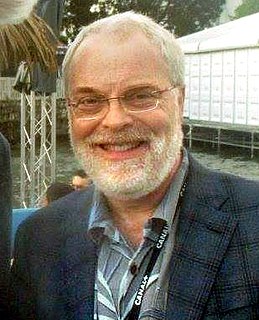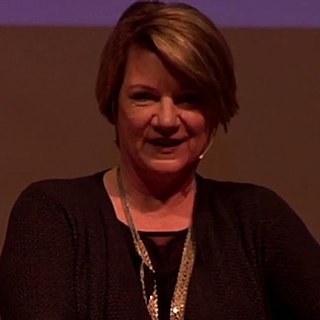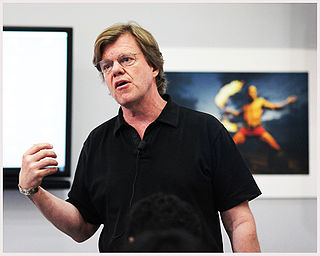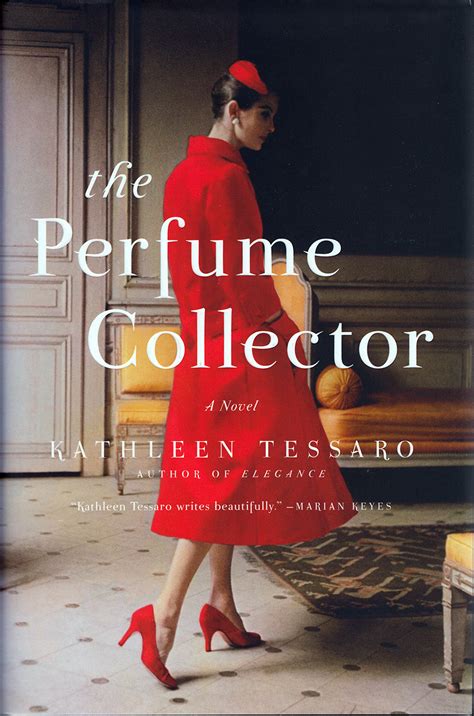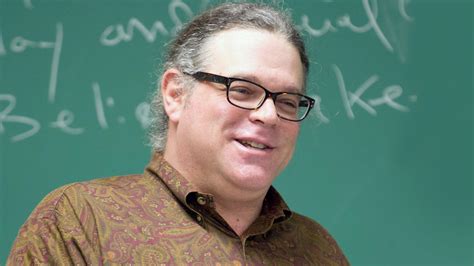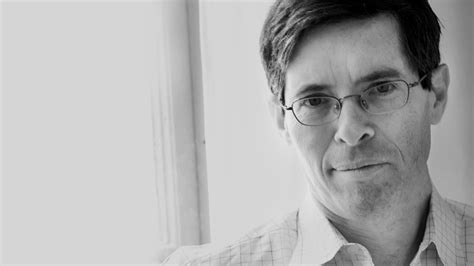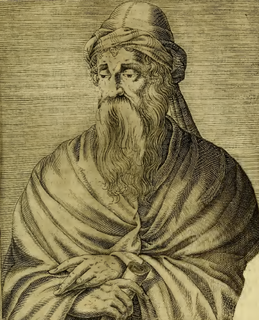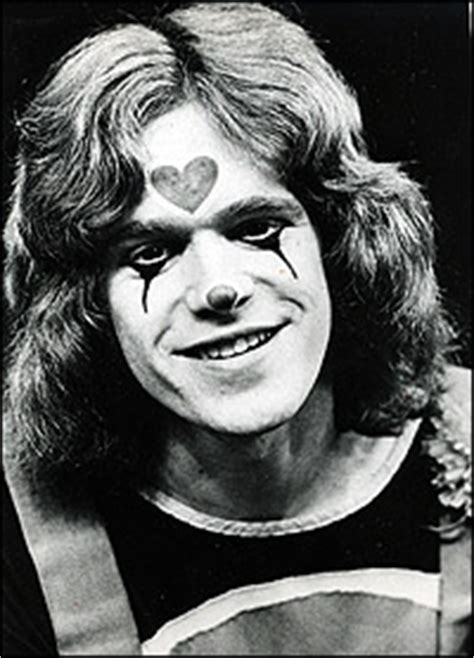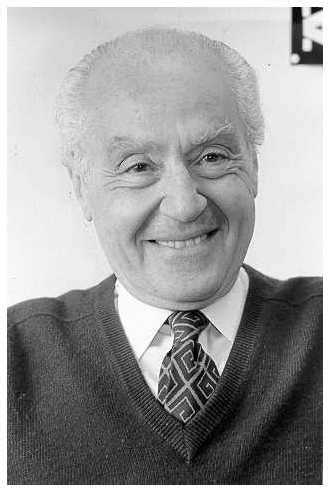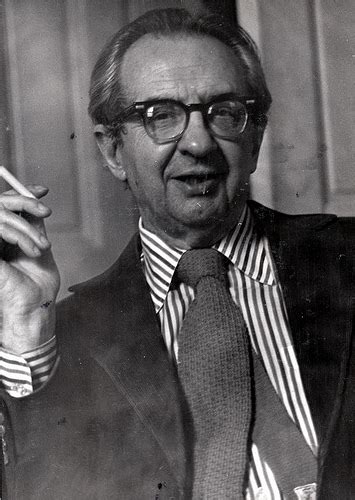Top 617 Mythology Quotes & Sayings - Page 10
Explore popular Mythology quotes.
Last updated on April 17, 2025.
For those in whom a local mythology still works, there is an experience both of accord with the social order, and of harmony with the universe. For those, however, in whom the authorized signs no longer work-or, if working, produce deviant effects-there follows inevitably a sense both of dissociation from the local social nexus and of quest, within and without, for life, which the brain will take to be for 'meaning'.
Organized religions in general, in my opinion, are dying forms. They were all very important when we didn't know why the sun moved, why weather changed, why hurricanes occurred, or volcanoes happened. Modern religion is the end trail of modern mythology. But there are people who interpret the Bible literally. Literally! I choose not to believe that's the way. And that's what makes America cool, you know?
[John Musker] got me reading the mythology and we very early on we worked up a basic storyline centered around the character of Maui. He just seemed like a great character to kind of build a movie around. He's this mythic demi-god, bigger than life character. He pulled up islands with his magical fishhook. He slowed down the sun. He's Pan Pacific.
The two greatest works of war mythology in the west ... are the Iliad and the Old Testament... When we turn from the Iliad and Athens to Jerusalem and the Old Testament we find a single-minded single deity with his sympathies forever on one side. And the enemy, accordingly, no matter who it may be, is handled... pretty much as though he were subhuman: not a "Thou" but an "It."
The whole thing that Dante [Alighieri] did was summed up in the medieval world. It's like St. Thomas Aquinas, the Summa Theologica. He didn't invent it, he just put it all in one package. You get twelve fat books there sitting in any library. Whereas... I think if Joshi thinks [H.P.] Lovecraft was doing anything like that, just throwing together all this stuff to form a kind of anti-mythology, that's where I would disagree with him.
Seán Manchester is, unsurprisingly, very well read in both classical and more recent sources on vampires and vampirism, and cites them with great authority while taking the reader through a brief tour of vampire lore and mythology. This is a book I'd recommend to anybody with an interest in the author or vampires. The parts which deal with vampires are obviously based on years of substantial research and personal experience.
A cultured society that has fallen away from its religious traditions expects more from art than the aesthetic consciousness and the 'standpoint of art' can deliver. The Romantic desire for a new mythology... gives the artist and his task in the world the consciousness of a new consecration. He is something like a 'secular saviour' for his creations are expected to achieve on a small scale the propitiation of disaster for which an unsaved world hopes.
An indigenous culture with sufficient territory, and bilingual and intercultural education, is in a better position to maintain and cultivate its mythology and shamanism. Conversely, the confiscation of their lands and imposition of foreign education, which turns their young people into amnesiacs, threatens the survival not only of these people, but of an entire way of knowing. It is as if one were burning down the oldest universities in the world and their libraries, one after another — thereby sacrificing the knowledge of the world's future generations.
Mythology is the study of whatever religious or heroic legends are so foreign to a student's experience that he cannot believe them to be true. . . . Myth has two main functions. The first is to answer the sort of awkward questions that children ask, such as: 'Who made the world? How will it end? Who was the first man? Where do souls go after death?'. . . . The second function of myth is to justify an existing social system and account for traditional rites and customs.
Subjective reason ... is inclined to abandon the fight with religion by setting up two different brackets, one for science and philosophy, and one for institutionalized mythology, thus recognizing both of them. For the philosophy of objective reason there is no such way out. Since it hold to the concept of objective truth, it must take a positive or a negative stand with regard to the content of established religion.
Most people assume that a muse is a creature of perfect beauty, poise and grace. Like the creatures from Greek mythology. They're wrong. In fact, there should be a marked absence of perfection in a muse--a gaping hole between what she is and what she might be. The ideal muse is a woman whose rough edges and contradictions drive you to fill in the blanks of her character. She is the irritant to your creativity. A remarkable possibility, waiting to be formed.
For me, fantasy and speculative science fiction are the genres that feel closest to how I feel about being alive. Like, when I feel the most invigorated by just even a walk down the block in twilight, when the street lamps are just coming on and there's mist and some shadowy thing in silhouette in a window, I naturally invest all of those things with deep mythology and mystery and meaning. I think I need to believe in that version of reality because I get very scared when I don't.
The epoch of doubt and transition during which the Greeks passed from the dim fancies of mythology to the fierce light of science was the age of Pericles, and the endeavour to substitute certain truth for the prescriptions of impaired authorities, which was then beginning to absorb the energies of the Greek intellect, is the grandest movement in the profane annals of mankind, for to it we owe, even after the immeasurable progress accomplished by Christianity, much of our philosophy and far the better part of the political knowledge we possess.
Anybody who's a mythology ... there's always a fear. That's why we don't like people whose skin color is different, whose eye slant is different, or whose worship is different. It makes them feel insecure. So we strike out. The thing that bothers me most about the Christian church today is that we spend our time confirming people in their own sense of wretchedness.
The knowledge of the individual citizen is of less value than the knowledge of science. The former is the opinion of individuals. It is merely subjective and is excluded from policies. The latter is objective - defined by science and promulgated by expert spokesmen. This objective knowledge is viewed as a commodity which can be refined... and fed into a process, now called decision-making. This new mythology of governance by the manipulation of knowledge-stock inevitably erodes reliance on government by people.
It's impossible to say that live art enjoys any single status in the information age--there are versions of live art that are still primarily art-world phenomena, others that appeal to much broader audiences. The Burning Man festival is a case in point--an event featuring performance that is itself a performance, which partakes simultaneously of frontier mythology, a counter-cultural impulse, and popular cultural visibility.
The Greeks used to use the same stories, the same mythology, time after time, different authors. There was no premium placed upon an original story, and indeed, Shakespeare likewise. A lot of people wrote plays about great kings. They didn't expect a brand-new story. It was what that new author made of the old story. It is probably the same now. We disguise it by inventing what seem to be new stories, but they're basically the same story anyway.
I took physics, and lo and behold, there's a lot of physics in 'Lost.' I think for most people, liberal arts educations are more abstract, but for me, it's been a chance to apply the things I've learned more directly. I also took some Folklore and Mythology classes, and I think that a lot of that influenced me.
I think Jesus is a fact of history. I think a man named Jesus of Nazareth lived and was crucified. I think his death interpreted his life in a fantastic way, because if you study that life carefully underneath an overlay of theology and mythology, you'll find that the power of that life was that he was constantly giving himself away. He was constantly calling people to be all that they could be.
I'll start with where we are right now. The map that I'll use is this birthing process, this kind of profound transition that we're going through, where the old narratives, the old story, the old mythology is wearing thin, beginning to fall apart. And as it does so, people hold on to it even more tightly. They haven't let go and won't let go until it becomes simply impossible to hold on to it anymore. And we're nearing that time, but not yet. Right now you can still pretend everything's normal, even though it's greatly hollowed out.
But if you didn't have more urgent things to do after supper [in boot camp], you could write a letter, loaf, gossip, discuss the myriad mental shortcomings of sergeants and, dearest of all, talk about the female of the species (we became convinced that there was no such creatures, just mythology created by inflamed imaginations - one boy in our company claimed to have seen a girl, over at regimental headquarters; he was unanimously judged a liar and a braggart).
So many of the great detectives that we see on television now owe their origins to Sherlock Holmes. What was very exciting about Rob's pitch and script was that he is a real Holmes-ian expert. He knew all of the mythology. He was very well-versed in the genesis of Holmes and the stories. And the twist with Watson is something we jumped at immediately. It's a very forward-thinking way of doing the show.
There's somewhat of a real fascination with American bands and American mythology in London, so I think we've tapped into some of that. Maybe because of the way the press works or whatever, they have extremely knowledgeable music fans over there. People who will sit there and talk to you about some record that came out in 1967 out of Memphis that you've never heard before.
Buffett was a billionaire who drove his own car, did his own taxes, and still lived in a home he had bought in 1958 for $31,500. He seemed to answer to a deeply rooted, distinctly American mythology, in which decency and common sense triumphed over cosmopolitan guile, and in which an idealized past held firm against a rootless and too hurriedly changing present.
What censorship accomplishes, creating an unreal and hypocritical mythology, fomenting an attraction for forbidden fruit, inhibiting the creative minds among us and fostering an illicit trade. Above all, it curtails the right of the individual, be he creator or consumer, to satisfy his intellect and his interest without harm. In our law-rooted society, we are not the keeper of our brother's morals - only of his rights.
I have always argued that we can't live by or be made to exist outside of mythology, and that every group and nation has, possibly unacknowledged to themselves, some myths by which they live. It remains important to revisit them, understand them and possibly retell them - or at least own up to them - and then it becomes possible to move something. If it's obscure or invisible to you, you can't budge those understandings.
It's not a bad idea to call this Cthulhuism & Yog-Sothothery of mine "The Mythology of Hastur" - although it was really from Machen & Dunsany & others, rather than through the Bierce-Chambers line, that I picked up my gradually developing hash of theogony - or daimonogony. Come to think of it, I guess I sling this stuff more as Chambers does than as Machen & Dunsany do - though I had written a good deal of it before I ever suspected that Chambers ever wrote a weird story!
I'm really interested in mythology and folklore. I'm interested in moralities, why we're here, faith... all of these bigger questions that I think we can place in films that allow us to question and give us a safe place to feel. Those types of questions can pop up in all sorts of different types of films - drama, comedy, action movie.
I have often come across convinced adepts of Greek mythology who mock our faith under the pretext that we do not say anything else to those whom we instruct in divine things, but merely command them to believe.
They accuse the apostles of ignorance, labelling them barbarians, because they do not have the subtlety of eloquence; and they say that the cult of martyrs is ridiculous, considering it completely absurd for the living to seek assistance from the dead.
When you look at that nature world it becomes an icon, it becomes a holy picture that speaks of the origins of the world. Almost every mythology sees the origins of life coming out of water. And, curiously, that's true. It's amusing that the origin of life out of water is in myths and then again, finally, in science, we find the same thing. It's exactly so.
The Unitarian Church has done more than any other church to substitute character for creed, and to say that a man should be judged by his spirit; by the climate of his heart; by the autumn of his generosity; by the spring of his hope; that he should be judged by what he does; by the influence that he exerts, rather than by the mythology he may believe.
The collective unconscious appears to consist of mythological motifs or primordial images, for which reason the myths of all nations are its real exponents. In fact the whole of mythology could be taken as a sort of projection of the collective unconscious. We can see this most clearly if we look at the heavenly constellations, whose originally chaotic forms are organized through the projection of images. This explains the influence of the stars as asserted by astrologers. These influences are nothing but unconscious instrospective perceptions of the collective unconscious.
Here's what I do believe very strongly: that once capitalism comes into existence, once it creates this mythology of a stingy nature, then that myth has to be exorcised. In other words, we have to get out of people's heads the idea that without a market economy, without egotism, competition, rivalry and self-interest, without all the technological advances that [Karl] Marx imputed to capitalism, we have to eliminate the feeling that we would sink into some kind of barbarism.
As we were developing 'Umbral', and I was delving into the mythology and legends, I had a sudden realisation. 'Wasteland' is about people who fervently believe new myths and legends, but they turn out to be false; whereas 'Umbral' is about people who reject ancient myths and legends, but they turn out to be true!
The story of my grandmother is that of a French woman from the provinces who through her perseverance and thirst for knowledge worked her way up to become the head of a school. She belonged to a generation that didn't travel much. But she believed in Europe and she wanted Europe. And she read a lot - she knew mythology, literature and the classics very well. She passed that on to me, along with the conviction that you can earn your own position in society.
My eighth grade teacher, Mrs. Pabst, had done her master's thesis on Tolkien. She showed me how the trilogy was patterned after Norse mythology. She was also the first person to encourage me to submit stories for publication. The idea of writing a fantasy based on myths never left me, and many years later, this would lead me to write Percy Jackson.
Studios are so used to digital now and there is a mythology that it's cheaper. But it's really not cheaper. For instance, digital is great for night exteriors, everybody knows it's a video tap, so it's very responsive to light. So you can go out at night, shoot with digital and it's gorgeous, beautiful to look at . Conversely, you go out and shoot day exterior, and it slams you, just like you know from your own video recording.
It was Sci-Fi and fantasy that got me reading, and Sci-Fi writers in particular have pack rat minds. They introduce all sorts of interesting themes and ideas into their books, and so for me it was a short leap to go from the fantasy and Sci-Fi genres to folklore, mythology, ancient history and philosophy. I did not read philosophy because I set out to become a philosopher; I read it because it looked interesting.
The most interesting to me were Doctor Strange, because he was so mystic, and Thor, because that was really cool. I mean, I had never been able to relate to the idea of a bearded guy in the sky, you know, and I'd always really liked mythology, and with Thor, it was like Stan Lee was actually saying, "Yeah, it's okay, there really is this Nordic god, there really is something besides the bearded guy in the sky". So I loved that!
It is impossible to repristinate a past world picture by sheer resolve, especially a mythical world picture, now that all of our thinking is irrevocably formed by science. A blind acceptance of New Testament mythology would be simply arbitrariness; to make such acceptance a demand of faith would be to reduce faith to a work.
The wonder is that the characteristic efficacy to touch and inspire deep creative centers dwells in the smallest nursery fairy tale-as the flavor of the ocean is contained in a droplet or the whole mystery of life within the egg of a flea. For the symbols of mythology are not manufactured; they cannot be ordered, invented, or permanently suppressed. They are spontaneous productions of the psyche, and each bears within it, undamaged, the germ power of its source.
Whatever sphere of the human mind you may select for your special study, whether it be language, or religion, or mythology, or philosophy, whether it be laws or customs, primitive art or primitive science, everywhere, you have to go to India, whether you like it or not, because some of the most valuable and most instructive materials in the history of man are treasured up in India, and in India only.
We rarely quote nowadays to appeal to authority... though we quote sometimes to display our sapience and erudition. Some authors we quote against. Some we quote not at all, offering them our scrupulous avoidance, and so make them part of our "white mythology." Other authors we constantly invoke, chanting their names in cerebral rituals of propitiation or ancestor worship.
Wherefore no name can be found for a new fossil [element] which indicates its peculiar and characteristic properties (in which position I find myself at present), I think it is best to choose such a denomination as means nothing of itself and thus can give no rise to any erroneous ideas. In consequence of this, as I did in the case of Uranium, I shall borrow the name for this metallic substance from mythology, and in particular from the Titans, the first sons of the earth. I therefore call this metallic genus TITANIUM.
I wanted Yoda to be the traditional kind of character you find in fairy tales and mythology. And that character is usually a frog or a wizened old man on the side of the road. The hero is going down the road and meets this poor and insignificant person. The goal or lesson is for the hero to learn to respect everybody and to pay attention to the poorest person because that's where the key to his success will be.
We still like to make up stories, just as our ancestors did, which use personification to explain the great forces of our existence. Such stories, which explain how the world began or where the sun goes when it sets, we call myths. Mythology is a natural product of the symbolizing mind; poets, when not making up myths of their own, are still commanding ancient ones.
Myths, whether in written or visual form, serve a vital role of asking unanswerable questions and providing unquestionable answers. Most of us, most of the time, have a low tolerance for ambiguity and uncertainty. We want to reduce the cognitive dissonance of not knowing by filling the gaps with answers. Traditionally, religious myths have served that role, but today — the age of science — science fiction is our mythology.
The Latin American has no tribe to fall back on, as the African does, no reliable judiciary to defend his rights as the European does, no social ideal or sacred constitution as the North American does, no pervasive mythology to soften life as it does in Asia, and no even an ideology to subscribe to, as does the Russian or Chinese. Without wealth, what is there left to him but his manhood, to be flaunted and defended at every occasion?
We can now say with considerable confidence that the Bible is not a history of anyone's past.... The Bible's "Israel" is a literary fiction... Not only have Adam and Eve and the flood story passed over to mythology, but we can no longer talk about a time of the patriarchs. There never was a "United Monarchy" in history and it is meaningless to speak of pre-exilic prophets and their writings... The Bible deals with the origin traditions of a people who never existed as such
You have a lot to learn, young man. Philosophy. Theology. Literature. Poetry. Drama. History. Archeology. Anthropology. Mythology. Music. These are your tools as much as brush and pigment. You cannot be an artist until you are civilized. You cannot be civilized until you learn. To be civilized is to know where you belong in the continuum of our art and your world. To surmount the past, you must know the past.
It is by far the most elegant worship, hardly excepting the Greek mythology. What with incense, pictures, statues, altars, shrines, relics, and the real presence, confession, absolution, - there is something sensible to grasp at. Besides, it leaves no possibility of doubt; for those who swallow their Deity, really and truly, in transubstantiation, can hardly find any thing else otherwise than easy of digestion.
There is a diverse meaning to the lyrics as well. A lot of the stuff I write is from a personal level but is not really anything that I care about if people get or not so I write alot of the stuff as metaphors based in Viking mythology and Viking History which is sort of my main interest in life and sort of my main atmosphere in life.
I think your mythology would call them fallen angels. War and hate are their business, and one of their chief weapons is un-Naming - making people not know who they are. If someone knows who he is, really knows, then he doesn't need to hate. That's why we still need Namers, because there are places throughout the universe like your planet Earth. When everyone is really and truly Named, then the Echthroi will be vanquished.
I was working within a figurative representational framework, and there was a sense of reading the painting as a transparency, or truth, or autobiography, which I think is partially the burden of artists of color - or women, or anybody who is representing a so-called minority position. Are you actually telling a true story, or your own story? You don't just get to tell a story. The readings of the work didn't necessarily conform to my own understanding of mythology, where violence and eroticism and the body and all of these different forms coexist all the time.



